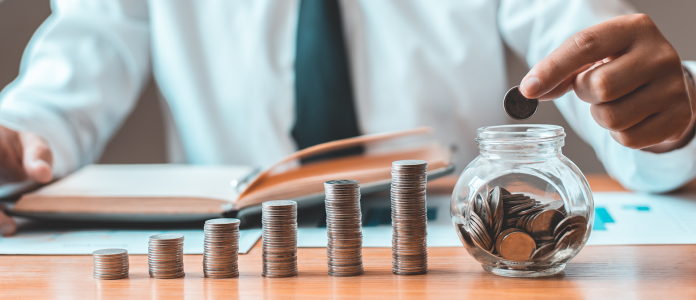With daily life becoming increasingly more expensive and salaries not stretching as far as they used to, cash stuffing – a viral TikTok trend, reaching almost a billion money conscious fans – is currently all the rage.
But does stuffing cash into envelopes labelled groceries, entertainment, petrol and the like really help you budget better? While an empty envelope is a sure-fire way to avoid overspending, is cash really king?
We asked Budget Insurance to weigh in on this topic and share the pros and cons about cash stuffing:
- Combine with other budgeting techniques: Since it’s not advisable to keep large sums of cash with you, consider using this technique only for certain expenses, whilst applying other pro budgeting tips to manage the others and save some cash.
- Don’t shout about it on social media: As much as this is a social media trend, you don’t want the world, and opportunistic criminals, to know that you’re keeping large sums of cash with you.
- Invest in a safe and store your cash subtly: Keep your envelopes in a good-quality safe, installed by professionals. It’s also a good idea to ensure you have home contents insurance, which provides cover for money locked in a secure safe.
- Don’t flash your cash: If you’re using cash to buy groceries, don’t take the whole month’s stash with you. Look at your list before you head to the shop, and work out just how much you need. This will also help avoid throwing non-essentials into your trolley, especially in the impulse aisle, as you wait to pay. All those little extras really do add up. The same goes for petrol, as you know the average amount it costs to fill your tank.
- Focus on areas where you tend to overspend: It’s easy to go over budget when it comes to things like entertainment and clothes shopping. Decide what you can comfortably afford for these. So, if you do splurge a little at the start of the month, be realistic and build that into your allocation. Remember that you’ll need to cut down for the remainder of the month. This will also help you plan better for months ahead so that you can still enjoy yourself throughout the month, within budget.
- Remember that you’ll lose out on some interest: If you keep all your money in an online bank account, you gain some interest. The portion you choose to withdraw as cash, which sits in a safe, obviously earns none. But if it helps you avoid overspending, then what you lose in interest, you gain in avoiding unnecessary debt.
- Don’t draw it all at once: If you’re considering cash stuffing, and decide you want to use R10 000 for example, rather withdraw it over a few days so that you are not at risk of carrying around such a large amount of money. Also take special care at ATMs and banks, where criminals are always on the prowl. Once you’ve withdrawn the total, separate it according to your chosen categories, and keep the envelopes in a secure safe.
- Don’t forget the savings/emergency fund envelope: Saving for a rainy day, and building that into your budget, committing to saving a set amount each month, could come in very handy. A good rule of thumb is to build up a reserve that can sustain you for at least three months, should you lose your income.
Advertisement






